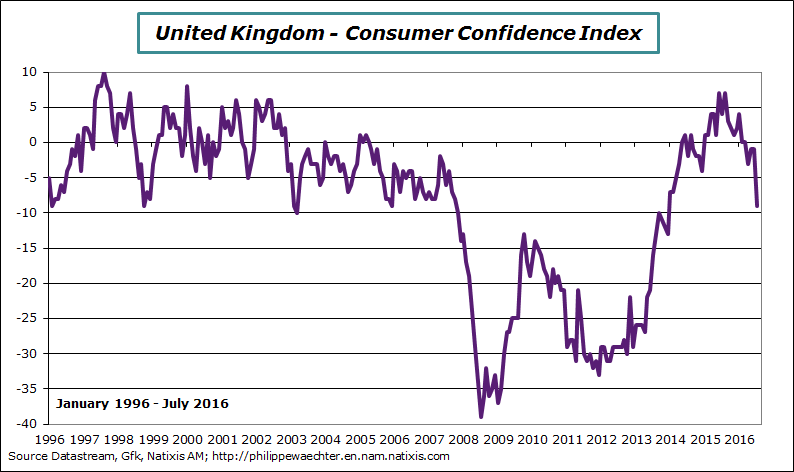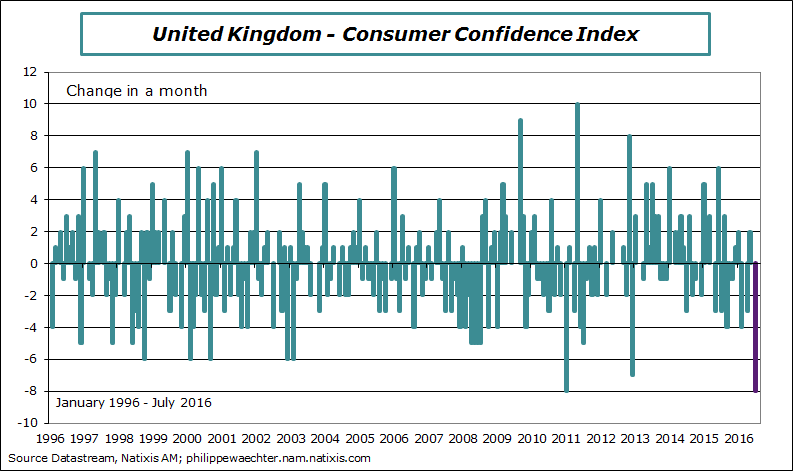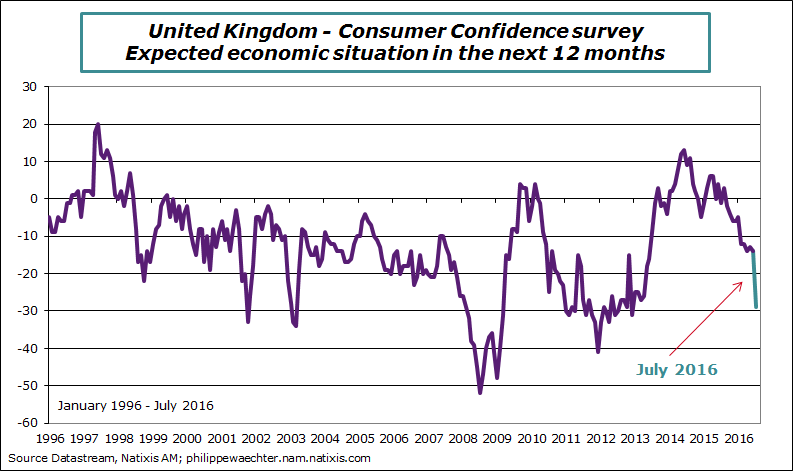After a vote, people are generally happy with the result. That’s what we see in France after a presidential election. With a new president there is a new situation and a majority of people think it will be better in the future. That seems logical and easy to understand.
British are different. They have just voted for a major change in their institutional framework as they want to exit from the European Union. We can expect that a majority of British people will be happy with that.
This is not the case. In July, the households’ confidence index drops deeply by 8 points (deepest drop). Clearly there is no enthusiasm for this fracture.
More than that, expectations on the economic activity for the next 12 months is trending downward dramatically. There is a risk of self prophecy for a recession. The message was that a Brexit could lead to a recession (see economists). The Brexit has been voted and people are worried by this perspective. They will adopt a lower profile for their expenditures because of the uncertainty created by the risk of recession; they prefer to save. But as demand addressed to companies will be lower, the probability of a recession is high.

Philippe Waechter's blog My french blog




